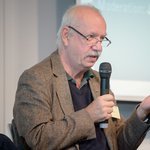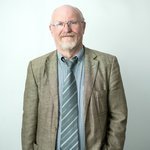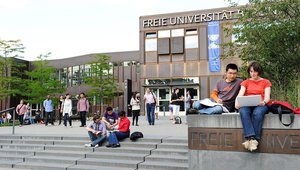



The Master's program is developed with the support of the Federal Foreign Office of Germany (Auswärtiges Amt) in cooperation with professors from the Technical University of Berlin (TU Berlin), Hamburg University of Applied Sciences (HAW Hamburg), University of Applied Sciences Zittau/Görlitz (HSZG), professors from DKU, etc.
Technical University of Berlin is considered to be world-known university in the capital of Germany, in the center of Europe. Deep field-specific development, outstanding achievements in researches and teaching, skills of the very good graduates and modern management are the main areas of its activity. They conform to principles of perfection and quality in search for knowledge increase and technical progress.
The Technical University of Berlin having about 33 500 students, about 100 study courses and 40 institutes is one of the largest, international-known and traditional technical universities in German. Outstanding achievements in researches and teaching, image of the best graduates and modern service-oriented administrative personnel feature the university in the capital of Germany - in the center of Europe.
Range of services offered by its seven faculties is a unique combination nature and technical sciences with planning, economics, social and human sciences in the technical university.
Within these disciplines it offers about 40 courses for bachelor’s degree and about 60 courses for master’s degree. Many of them have unique advantages. Technical University of Berlin is the sole university in the capital region where you can study engineering disciplines.
Scientific basis is fundamental researches in such science disciplines as chemistry, physics and mathematics as well as deep innovative-oriented researches. For example, electrical engineering and computer science. In all these subjects TU Berlin is distinguished by outstanding achievements supported by the advanced experience of the federal and state governments, German research foundation, European Union, industrial and public areas that teams perform world researches.

Increase in research project funding by the third party from about 125 mln euro in 2009 to about 177,5 mln euro in 2015 is a clear evidence of efficiency and development progress. For many years TU Berlin has been one of the leading universities in Germany excluding medical institutions.
Fundamental problems in the modern societies and sciences can not belong to specific subjects; they require a disciplinary approach. Within these areas the TU Berlin is aimed at innovative research topics and new study courses.
Dr Lutz Mez
Hamburg University of Applied Sciences (HAW Hamburg) is a competent expert in many fields of development of Free and Hanseatic city of Hamburg and capital area. Sciences about life in Bergedorf; technologies, information technologies, economics and social issues in Berliner Tor, design, mass media and information on Art and Media Campus Finkenau and fashion campus Armgartstraße - we offer solution of different problems.
To develop stable solutions of actual and future social problems: This is the aim of the University of applied sciences Hamburg (HAW Hamburg) - leading university in North Germany when we speak of conscious experience. Special attention is paid to the high quality of studying and teaching. Simultaneously the Hamburg University of Applied Sciences (HAW Hamburg) is developing its profile as a research university. People from more than 100 countries help to make up the Hamburg University of Applied Sciences (HAW Hamburg). Their variety is a particular strength.
The Hamburg University of Applied Sciences is the practice-oriented university:
International university
The Hamburg University of Applied Sciences maintains partner relations with more than 100 European universities and universities from North and South America, Asia and the Near East. Our partnership agreements provide study tours, professor job training and joint research work. They allow receiving international experience and additional diplomas in our partner universities.
Responsibility for environment protection
Globalization and network coverage also require multi-disciplinary knowledge in ecological technologies and environment protection. Acknowledgement, evaluation, reducing and preventing environmental problems in industrially developed countries and countries with developing economy that is what differs our multi-disciplinary know-how from the technical engineering to fundamental natural sciences.

Department of ecological technologies offers the following study courses
Prof. Dr. Rainer Sawatzki
Department of Biotechnology
Professor für Mathematik
University of Applied Sciences Zittau/Görlitz (HSZG) was founded based on TU Zittau/Görlitz in 1992. It is the international educational institution. It has partner relations with more than 100 universities in more than 40 countries including DKU from the 2002.
Nowadays about 3000 students study at six faculties including 23 bachelor, 6 diploma and 15 master courses of technical, economical or social field. About 20% of students come from more than 30 countries.
University with two offices in Zittau and Görlitz is an academical center in the Upper Lusatia. Traditionally, the near-body cooperation includes Euro region Neisse and countries of the Eastern Europe.

The main line of cooperation with DKU is cooperative program of double diplomas in two economical subjects. This program has successfully been implemented from 2010.
University of Applied Sciences Zittau/Görlitz is one of the most scientifically and conceptually efficient universities of applied sciences. It conducts applied researches and developments for ecologically clean world. Pilot projects in the model region Upper Lusatia are implemented in close cooperation with a big number of external partners and its results are delivered to the national and international levels.
The principles of truth, justice, and freedom shape the identity of Freie Universität Berlin.

Freie Universität Berlin in the Excellence Initiative and the Excellence Strategy
Freie Universität Berlin performed successfully three times in the German government’s Excellence competition for universities. As a result of the latest competition, the German Excellence Strategy, the university will receive long-term funding beginning in 2019 as part of the Berlin University Alliance, which is made up of Freie Universität Berlin, Humboldt-Universität zu Berlin, Technische Universität Berlin, and Charité – Universitätsmedizin Berlin. Freie Universität was the only university in Berlin and one of six universities nationwide to be recognized as an excellent university in both rounds of the previous competition, the German Excellence Initiative, in 2006/2007 and 2012.
Interdisciplinary Work within Research Alliances
The main features of Freie Universität’s research activities include the broad variety of global academic and scientific cooperation arrangements in place as part of alliance projects and networks with other entities active in research, alongside the university’s innovative support concepts for junior scholars and scientists and the scope of the external funding the university raises.
The various areas of focus in the research conducted at Freie Universität are organized into various structures, including interdisciplinary focus areas, excellence clusters, collaborative research centers, and research centers.
Wide Variety of Academic Offerings and Excellent Support for Junior Scholars and Scientists
Freie Universität is a full-spectrum university, comprising twelve departments and three Central Institutes that together offer more than 150 different academic programs in a broad range of disciplines. Charité – Universitätsmedizin Berlin is the joint medical school of Freie Universität Berlin and Humboldt-Universität zu Berlin.
Dahlem Research School (DRS) at Freie Universität Berlin offers the framework encompassing a range of outstanding structured doctoral programs. By establishing the DRS, Freie Universität Berlin broke new ground in the field of graduate education in Germany, all with the aim of offering junior scholars and scientists the best possible conditions for their academic development. At the DRS, strategies to support doctoral candidates and postdoctoral students at Freie Universität are developed, research within interdisciplinary and international alliances is fostered, and established graduate schools and research training groups receive support alongside new initiatives.
International Alignment
Freie Universität owes its founding, in 1948, to international support, and international impulses have shaped the university’s research activities and student life ever since. As an International Network University, Freie Universität thrives on its many contacts with higher education institutions and organizations in Germany and abroad, which provide critical impetus for the university’s research and teaching activities.
Today, Freie Universität maintains roughly 100 partnerships at the university-wide level, along with about 330 university partnerships within the Erasmus academic exchange network and ca. 45 institute partnerships, forming a wide-ranging and tight-knit global network.
Each year, about 600 international scholars and scientists contribute to the variety of teaching and research activities pursued at Freie Universität. One groundbreaking development that demonstrates the way the university takes international cooperation to the next level is the five international liaison offices of Freie Universität that were founded beginning in 2007 – in Beijing, Cairo, Moscow, New Delhi, and São Paulo. Another is the establishment of special arrangements with selected universities in the form of strategic partnerships.